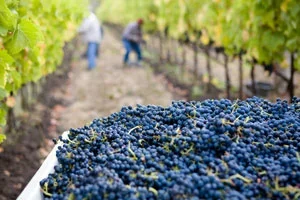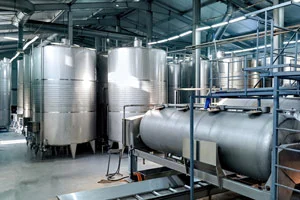The wine industry is one of the most important in Spain and in many other countries around the world. However, wine production also generates large amounts of vine residues that can be harmful to the environment. For this reason, the FEV (the Spanish Wine Federation), together with 9 other entities dedicated to various activities within the wine sector, have launched a circular economy operating group called REBO2VINO, which aims to analyse the impact and feasibility of a glass bottle reuse system in the Spanish wine sector.
In this article, we will delve into the details of this project and learn how it can benefit the environment and the wine sector.
Project participants
Led by the FEV, the project includes the participation of Minsait (part of Indra), Verallia Spain, González Byass, Familia Torres, Artica Ingeniería e Innovación (Artica +i), the UNESCO Chair of Life Cycle and Climate Change ESCI-UPF, and, as collaborating partners, the Association of Manufacturers and Distributors (AECOC), Ecovidrio and Hospitality of Spain, thanks to which the analysis of its impact on the Horeca channel will be representative in laying the foundations and exploring the possibilities of putting this model into practice at the European level.
The implementation of this innovative project is estimated to last 29 months, according to official sources. As a starting point, this includes a market study and various experimental pilot tests to analyse not only the environmental impact, but also the technological and economic feasibility of the implementation of a glass bottle reuse system.
What are the objectives of the REBO2VINO project?
The main purpose of the REBO2VINO project, which consists of the analysis of the feasibility and impact of a glass bottle reuse system for the Spanish wine sector, encompasses a series of specific objectives:

- – Establish the quantitative scope and potential application of this system in Spain, as well as analyse the position and interest of producers in the adoption of reusable packaging.
- – Design and validate a standard reusable bottle in order to facilitate the implementation and feasibility of the system in Spain, also considering its possible homologation at the European level.
- – Identify and analyse the main barriers, limitations and opportunities for the implementation of this system in the Horeca channel.
- – Design and carry out a real pilot test of the glass bottle reuse model, integrating digital tools for traceability management and evaluating its technical, economic and environmental feasibility.
- – Propose and develop a best practices guide.
- – Develop and launch a simplified technological tool that educates wineries about the possible environmental benefit of reusing glass bottles, taking into account their specific situation and particularities.
- – Define a communication and dissemination strategy for the glass bottle reuse project in the wine sector.
Reusable wine bottles must meet several requirements:
As part of the development of this sustainable initiative, a reusable bottle must be designed to later serve as a standard model for reuse, which, in addition to not affecting the quality of the wine, also meets the requirements for the Life Cycle Analysis (LCA) and the Product Environmental Footprint standards of the European Union.
The data obtained will make it possible to see if this proposed circular economy model is an efficient solution for the wine sector, and in which case, it could be considered an opportunity to reduce the environmental impact caused by packaging, while reducing the generation of waste, in line with the new national and European packaging regulations.
At the end of the project, REBO2VINO will have a Best Practices Guide, collecting the tools to facilitate its implementation, aimed at the entire wine sector.
Funded by the European Union
As confirmed by those responsible for the project in its official presentation, the REBO2VINO project received aid of € 563,721.90, financed entirely by the European Agricultural Fund for Rural Development (EAFRD) of the European Union, within the framework of the National Rural Development Program 2014-2022, with funds from the European Recovery Instrument (EU Next Generation).
Agrovin Group supports sustainability in the wine sector
At the Agrovin group, we support any innovation project that adds value and helps to alleviate the effects of climate change that affects all sectors, especially the wine sector, as we have seen in recent years. It is part of our brand philosophy to make wineries more and more responsible and this project shows that there are many starting points for reducing environmental impact.
The Agrovin Group helps wineries to be increasingly responsible by making use of sustainable technology that allows a significant saving of resources, especially energy, such as in the use of systems such as Ultrawine Perseo, OxiOut or Ulises Tank Control. And we believe that the reuse of glass bottles will be a solution that contributes efficiently to reducing our carbon footprint and therefore the environmental impact.
If you want to learn more about the project and track its progress, we recommend subscribing to our newsletter and visiting the REBO2VINO website.

